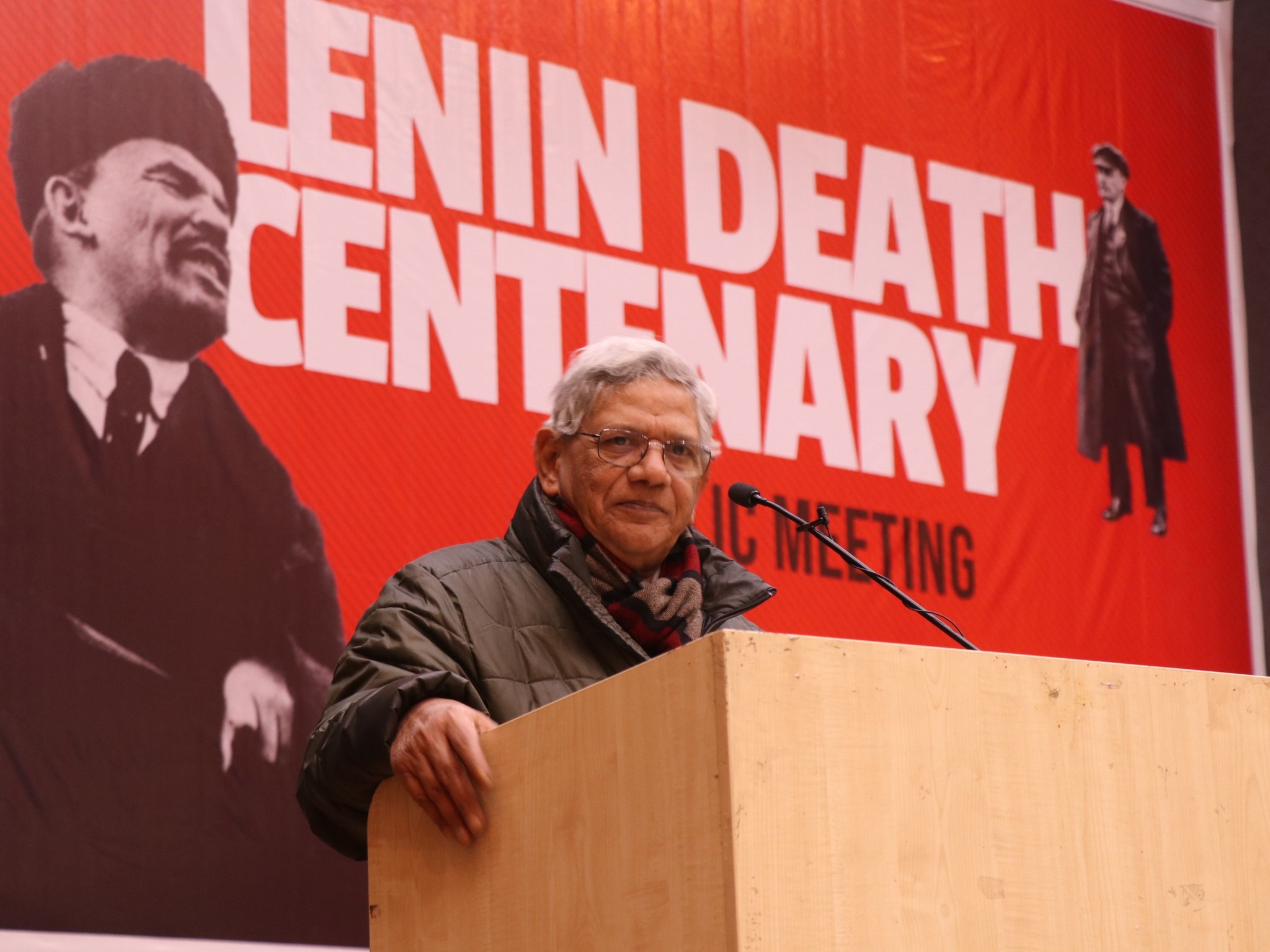
ON January 24, 2024, on the occasion of centenary of Lenin's death, CPI(M) Delhi state committee organised a public meeting at Surjeet Bhawan. The public meeting was addressed by Sitaram Yechury, general secretary of CPI(M). Along with this, drama, exhibition, singing of revolutionary songs and a movie screening was conducted.
Addressing the public meeting, Sitaram said that Comrade Lenin, the revolutionary star of human liberation, had died at the age of just 54. Marx had said that philosophers have interpreted the world, but the real point is to change it. Lenin worked to prove Marx right. A social system can be created without economic and social exploitation and he worked towards it. Not only this, along with supporting the anti-imperialist movement around the world, he also supported freedom movements world over against colonialism. He wrote books on different subjects. He wrote many books with this aim in mind – to take the revolution forward, to ensure that the revolution moves on the right path and does not deviate from that path.
Sitaram discussed the two broad aspects of Marxist philosophy – scientific and revolutionary – and explained the right-wing and left-wing deviations and said concrete analysis of concrete situations was the basis of Lenin's writings. By analysing the concrete circumstances, he understood the changes in capitalism in his time and worked to advance Marxist philosophy. Understanding the imperialist tendency, Lenin not only recognised the imperialist form that strangles the world in the chain of exploitation, but also analysed it on scientific basis. He recognised Russia as the weakest link of the chain and tried to break it by strengthening the organisation there. He also recognised the contradictions among the imperialist countries around the world and worked to ensure the success of the revolution within Russia.
Sitaram said that if we analyse the concrete circumstances of today's India in a scientific and revolutionary manner, then in order to move forward we will have to defeat the communal forces and remove them from State power. Communal forces work to break class unity. Today, through the State power, these communal forces are ensuring the country's assets in the hands of a handful of industrialists. A large section is becoming even poorer today. To intensify this growing contradiction, the movement of revolutionary forces will have to be strengthened. These revolutionary classes are the agricultural labourers, workers and farmers under Indian conditions. The revolution can be taken forward only by ensuring the unity of the struggles of the most exploited classes. BJP and RSS are the biggest obstacles in this. Therefore, the strategy of weakening the BJP-RSS and removing them from State power through the formation of INDIA is a task emanating from the Party Congress.
Lenin's book What Is to Be Done? was released in the public meeting, published by Left Word and preface written by Prakash Karat. The meeting was presided over by KM Tiwari, Secretary of Delhi state committee. Polit Bureau member Brinda Karat also participated in the public meeting.
Before the start of the public meeting, Jan Natya Manch staged the play ‘Kabhi Na Khatam Hota Kaam’. SFI organised an exhibition on various aspects related to the life of Lenin. Members of Dastak, Parcham, Bangla Manch and Janasanskriti presented revolutionary songs in memory of Lenin. At the end of the programme, the cinema 'October' based on the Russian Revolution was screened. A large number of people participated in the programme despite the inclement weather conditions.


